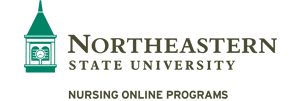Supply versus demand of registered nurses has been a hot topic for years. A plethora of literature, reports, and expert opinions suggests that a widespread nursing shortage is looming. In light of the growing number of aging Americans, the increase in insured Americans due to the Affordable Care Act, the shortage of nursing faculty, and the emergence of new care delivery models, the prediction seems legitimate.
The demand for experienced, BSN-prepared nurses will continue to increase. There are many compelling reasons to complete an RN to BSN program that can allow you to remain ahead of the competition in the nursing job market. Today is the opportune time to enter the nursing profession or further your nursing education.
Increased Complexity of Patient Care
Ask an RN who has been in practice for more than five years and you will likely hear that patient care is becoming more complex. Patients on medical/surgical units in acute care hospitals used to be the patients sent to the Intensive Care Unit. The number of patients in long-term care and assisted living facilities continues to increase as the U.S. population ages, as does the complexity of their healthcare. These patients require a higher level of care supported by critical thinking and knowledge of the latest evidence to ensure quality outcomes.
A Decrease in Experienced RNs
While a surplus of nurses may be on the horizon, an impending shortage of experienced nurses is a concerning reality. Over the next decade, nearly one million nurses who began their careers in the 1970s and 1980s will retire. That means novice nurses entering the workforce will not have enough experienced nurses to serve as mentors. If you earned your Associate Degree in Nursing (ADN) or Diploma in Nursing, completing an RN to BSN program can place you in an optimal position to become a mentor for the next generation of nurses – which can make you a very valuable asset.
Prepared for Change
Healthcare economist and professor of nursing Peter Buerhaus, Ph.D., RN, worries that the nursing workforce may not be prepared for the changes facing healthcare. “The nursing profession needs to make sure that the nurses coming out of school are savvy about healthcare reform and understand value-based care” says Buerhaus. “We will expect nurses to be good team leaders and team members and to be more nimble and flexible.” Completing an RN to BSN program can help you build leadership skills and gain knowledge regarding healthcare policy and finance. Paired with your current experience as an RN, you may be at the top of the list of candidates for a highly sought-after nursing job.
Meet the Demand
Hospitals awarded Magnet Status by the American Nurses Credentialing Center (ANCC) are among the most desirable places for RNs to work. This prestigious achievement requires that all nursing managers hold a BSN. The Institute of Medicine (now the National Academy of Medicine, or NAM) recommends that 80 percent of nurses should be BSN-prepared by 2020. The demand for Advanced Practice Registered Nurses (APRNs) is also expected to increase by approximately 30 percent by the year 2022. Whether you’re interested in nursing leadership, advanced practice or a specialty field of nursing, the possibilities for professional development and career advancement increase with BSN preparation.
The future of nursing is uncertain in many ways. Depending on population growth, healthcare policy changes and economic fluctuation, the United States might face a significant nursing shortage. There will most certainly be a shortage of experienced RNs, as nearly one-third of the current nursing workforce retires over the next decade. In the event of a surplus of nurses, competition for nursing jobs may increase significantly. These factors highlight the benefit of completing an RN to BSN program to prepare for any shift in the demand for RNs.
Learn more about the NSU online RN to BSN program.
Sources:
BluePipes: 10 Things to Know About the Projected Nursing Surplus
Hospitals & Health Networks: The 4 Forces That Will Reshape Nursing
HRSA: The Future of the Nursing Workforce: National- and State-Level Projections, 2012-2025


